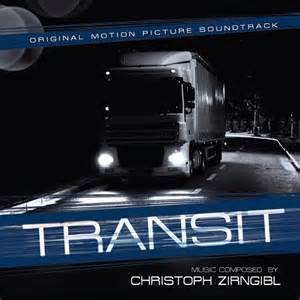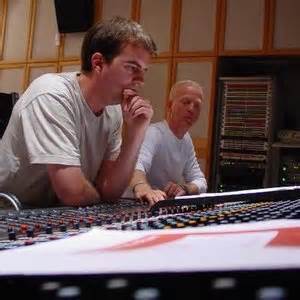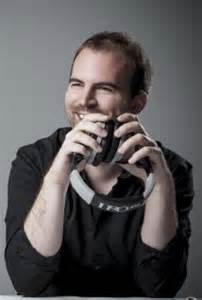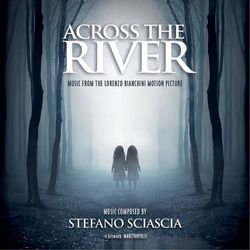Released on KRONOS RECORDS. 2014.
Composer Christoph Zirngibl began his musical career by learning how to play the drums. From the age of just five the composer was attracted to music and it was not long before he began to have piano lessons at the age of twelve. At this stage in his musical development the composer admitted he was not really aware of film music. He was more interested in improvising music when he sat at the piano rather than following the notes that were written on the manuscript in front of him. This was something that was not exactly encouraged at first by the composer’s tutors, but as he progressed, the experimentation and improvisation was looked upon more positively. Christoph began to take notice of music in film and it was fellow German composer Peter Thomas who caught his attention with the score for the Sci-Fi, television series SPACE PATROL. But it was the music of John Williams that made up the thirteen year old’s mind that he would write music for film when he heard the vibrant and powerful score for JURRASSIC PARK. Christoph continued to study piano and also carried on playing drums and along the way also began to write songs and small scale compositions. In 2000 he joined the army and began to play drums in the army band, after which he decided to study music formally. Until today Christoph has composed the music for more than 40 TV movies and feature films.
What musical studies did you undertake and who was your tutor?
I started to study ‘Scoring for Film and TV’ at the University of Music and Performing Arts in Munich in 2003 under the German film composer Enjott Schneider (Stalingrad, Stauffenberg, Brother of Sleep, 23). During the first two terms composer Andreas Weidinger filled in for him. One day, after a few weeks in the 1st term it was that Andreas needed someone to support him for a current project with a demanding schedule. So I became his assistant starting with making coffee, doing music preparation and creating sounds until after some time I was involved in doing some minor co-composition and orchestration stuff. So I very early had the chance to get to know the real life of a film composer with all its different facets, which was every bit as important as the courses at university.
What composers or artists would you say have influenced you in the way you write or score a film?
Going back a bit in film history two guys that have become more and more important to me are Bernard Hermann and Alfred Hitchcock. The way especially Hitchcock used to think about movies, stories and dramatic aspects is really interesting. His thoughts on what a good story should be about, what the audience expects from a good story and seeing how he used to apply this knowledge when making a film can be really inspiring for a film composer also in a modern context, I think.
In the big film music world there are many interesting characters whose work I admire a lot, such as Jerry Goldsmith, Alan Silvestri, Lalo Schiffrin, Alexandre Desplat or Henry Mancini and of course John Williams. In terms of sound and also modern film dramaturgy Hans Zimmer is an absolute must. More and more important to me are also Michael Giacchino and Christophe Beck, who are really great in terms of stylistic flexibility and handling their catchy themes.
But I’m primarily influenced by non-film-related music, songs, classical music, electronic music etc. and by experiencing concerts – that’s where most of my initial ideas come from.
TRANSIT contains a quite varied score, did you have specific instructions from the director about the music or was there a temp track installed to guide you?
For TRANSIT we didn’t use temp music. The director and I listened to some music during our talks about the script or we exchanged MP3s without syncing them to picture just to specify emotional aspects. These tracks mostly were no film music but songs or classical music. As to me, this was a very inspiring workflow which especially is suited for movies with bigger dramaturgical arcs.
How did you become involved on TRANSIT and what size orchestra/ensemble did you use for the soundtrack and what percentage was performed by electronic or synthesized elements?
I had composed the music for Philipp’s very first short movie “Julian”. In that project we had already developed a great working relationship. So I was very happy to be able to take this relationship to the next level with his follow-up project “TRANSIT”.
There are kind of two sound worlds in the score: an emotional string orchestra world as well as a more ambient/atmospheric world. The latter consists of treated bits and excerpts from the first one and the two worlds are connected to each other by the use of solo instruments (acoustic guitar, kantele, piano) that represent the movie’s diverse characters. Most of the electronic sounding stuff as well as the percussions are also created out of recordings I did especially for this project.
There are some lovely guitar solos within the fabric of the score, when you are writing a score and you decide that there will be a solo instrument do you write the music with a particular soloist in mind and do you perform regularly on your scores?
Well, thanks a lot! It depends on the sound and style of the music I have in mind. As TRANSIT was a low budget project I did not dare to think about a specific soloist beforehand but I was very lucky that Markus Wienstroer, one of Germany’s prolific studio and live guitarists, agreed to perform on this score. This was also the case with Giacomo Castellano whom I have been working with very regularly since TRANSIT. To answer your question more precisely: Most of the time I have a really specific sound in mind and then I have to find an artist who understands my ideas musically and sound-wise.
As for myself I do perform on most of my scores whether it is as a piano-/keyboard-player, a percussionist or on other instruments. I think this is an important part of my, if not of any film composer’s, musical and stylistic personality: Film music is all about emotional authenticity and to achieve it, most of the time you don’t really need the world’s best guitar-player, singer and so on but you have to find a personality that can add that unique emotional flavor that makes music special.




